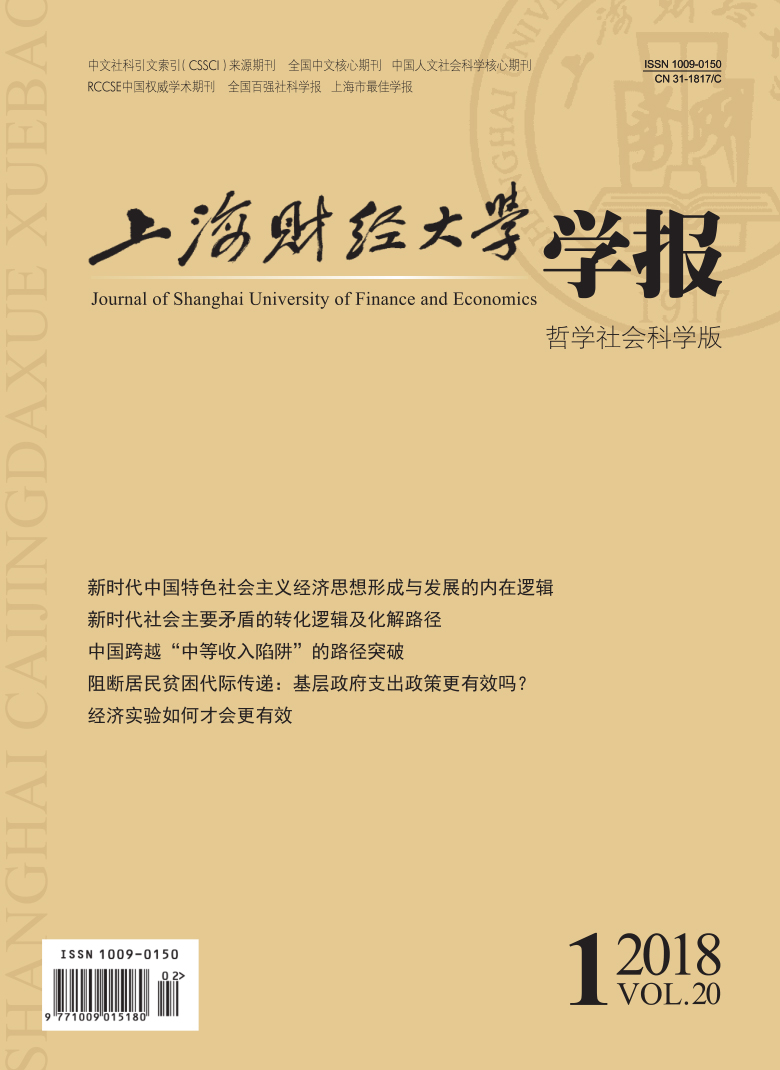房价上涨过快,不仅导致居民的住房需求难以得到满足,承受较重的经济负担和精神压力,还可能致使行为人寻求非正当渠道获取财富,甚至产生报复等极端行为,由此致使刑事案件增多。文章利用1999–2014年中国省级面板数据,采用固定效应模型和动态面板数据模型,从住房价格和住房支付能力的角度对刑事犯罪率不断攀升做出解释,并构建收入差距这一中介变量分析影响途径。结果表明,在控制性别比、教育、福利支出等影响因素的情况下,房价上涨对犯罪率攀升具有一定的解释作用,并且以房价收入比衡量的住房支付能力越差,犯罪率越高。另外,房价上涨会恶化收入分配,导致居民间的收入差距扩大,使得低收入群体的相对剥夺感增强,间接强化了对犯罪率的刺激作用。因此,控制房价的非理性增长不仅能有效促进经济发展,而且有利于减少刑事案件的发生,对维护社会治安稳定具有重要意义。
房价、住房支付能力与刑事犯罪—基于中国省级面板数据的实证分析
摘要
参考文献
5 陈彦斌, 邱哲圣. 高房价如何影响居民储蓄率和财产不平等[J]. 经济研究, 2011, (10).
6 陈屹立. 收入差距、经济增长与中国的财产犯罪: 1978–2005年的实证研究[J]. 法制与社会发展, 2007, (5).
15 王同益. 外来人口、户籍制度与刑事犯罪[J]. 人口研究, 2016, (2).
17 温忠麟, 张雷, 侯杰泰, 刘红云. 中介效应检验程序及其应用[J]. 心理学报, 2004, (5).
20 徐宏发. 转型期中国犯罪成因研究: 基于犯罪经济学的视角[J]. 中国人民公安大学学报(社会科学版), 2015, (1).
22 许玲丽, 周亚虹. 对警力与犯罪相互关系的实证研究[J]. 数理统计与管理. 2011, (1).
26 周华东, 周亚虹. 收入差距推动了我国房价上涨吗? [J]. 产业经济研究, 2015, (4).
27 Becker S G. A theory of the allocation of time[J]. The Economic Journal, 1965, 75(299): 493–517. DOI:10.2307/2228949
28 Blau J R, Blau P M. The cost of inequality: Metropolitan structure and violent crime[J]. American Sociological Review, 1982, 47(1): 114–129. DOI:10.2307/2095046
29 Buonanno P, Montolio D, Raya-Vílchez J M. Housing prices and crime perception[J]. Empirical Economics, 2013, 45(1): 305–321. DOI:10.1007/s00181-012-0624-y
30 Buonanno P, Montolio D. Identifying the socio-economic and demographic determinants of crime across Spanish provinces[J]. International Review of Law and Economics, 2008, 28(2): 89–97. DOI:10.1016/j.irle.2008.02.005
31 Edlund L, Li H B, Yi J J, et al. Sex ratios and crime: Evidence from China[J]. The Review of Economics and Statistics, 2013, 95(5): 1520–1534. DOI:10.1162/REST_a_00356
32 Fallahi F, Rodríguez G. Link between unemployment and crime in the US: A markov-switching approach[J]. Social Science Research, 2014, 45: 33–45. DOI:10.1016/j.ssresearch.2013.12.007
33 Ihlanfeldt K, Mayock T. Panel data estimates of the effects of different types of crime on housing prices[J]. Regional Science and Urban Economics, 2010, 40(2-3): 161–172. DOI:10.1016/j.regsciurbeco.2010.02.005
34 Iqbal A, Ceccato V. Does crime in parks affect apartment prices?[J]. Journal of Scandinavian Studies in Criminology and Crime Prevention, 2015, 16(1): 97–121. DOI:10.1080/14043858.2015.1009674
35 Kelly M. Inequality and crime[J]. The Review of Economics and Statistics, 2000, 82(4): 530–539. DOI:10.1162/003465300559028
36 Merton R K. Social structure and anomie[J]. American Sociological Review, 1938, 3(5): 672–682. DOI:10.2307/2084686
37 Pope J C. Fear of crime and housing prices: Household reactions to sex offender registries[J]. Journal of Urban Economics, 2008, 64(3): 601–614. DOI:10.1016/j.jue.2008.07.001
38 Shaw C R, McKay H D. Juvenile delinquency and urban areas[M]. Chicago: The University of Chicago Press, 1969.
39 Yao S J. On the decomposition of Gini coefficients by population class and income source: A spreadsheet approach and application[J]. Applied Economics, 1999, 31(10): 1249–1264. DOI:10.1080/000368499323463
引用本文
常雪, 苏群, 周春芳. 房价、住房支付能力与刑事犯罪—基于中国省级面板数据的实证分析[J]. 上海财经大学学报, 2018, 20(1): 72–86.
导出参考文献,格式为:





 , 1
, 1 9893
9893  11954
11954

